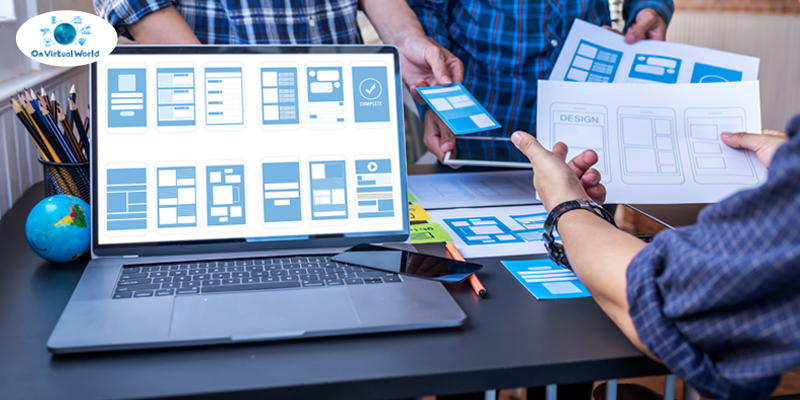Hiring a dedicated mobile app developer team in 2024 is a crucial process for businesses looking to create high-quality, scalable, and innovative mobile applications. The demand for skilled app developers continues to grow, making it essential to follow a structured approach to ensure you find the right talent for your project. Here’s a detailed guide to help you hire the best mobile app developers:
1. Define Your Project Requirements
Before beginning your search, clearly outline the scope of your project, its objectives, and the desired timeline. Determine whether you need to develop an iOS, Android, or cross-platform app, as this will influence the type of developers you require. Consider specific technical expertise, such as proficiency in Swift for iOS, Kotlin for Android, or frameworks like React Native and Flutter for cross-platform development. Additionally, factor in the complexity of your project—whether it involves advanced features like AI, AR/VR, or blockchain integration.
2. Choose the Right Engagement Model
There are various engagement models to consider when hiring a mobile app development team. The most common options include:
- Full-time: Ideal for long-term projects with ongoing development needs.
- Part-time: Suitable for smaller or more flexible projects where developers are needed periodically.
- Project-based: Best for one-time projects with a clear end date and deliverables.
Your choice will impact team structure, management style, and the overall workflow, so choose the one that best aligns with your business needs and project scale.
3. Identify Talent Pools and Shortlist Candidates
Finding the right team begins with knowing where to look. Use platforms like LinkedIn, Upwork, Clutch, and specialized app development agencies to source qualified developers. Seek out candidates or teams with proven experience in your specific industry or app type. Shortlist candidates based on their technical skills, portfolios, and client reviews. Don’t forget to evaluate their communication style and ability to integrate with your existing team culture.
4. Conduct Interviews and Technical Assessments
Once you have shortlisted candidates, conduct comprehensive interviews to assess their technical abilities, creativity, and problem-solving skills. It’s beneficial to include practical coding challenges or app development tasks that mimic the real-world issues your app might face. Ensure you assess the following:
- Technical expertise: Proficiency in programming languages, frameworks, and tools.
- Problem-solving abilities: Ability to tackle complex challenges and innovate solutions.
- Communication skills: Clear and proactive communication is key to successful project collaboration.
- Previous experience: Evaluate past projects to gauge their ability to meet deadlines and deliver quality results.
5. Ensure Team Fit and Cultural Alignment
Hiring the right talent goes beyond technical skills. A cohesive development team should align with your company’s culture, values, and work style. Look for developers who are adaptable, open to feedback, and willing to collaborate closely with your in-house teams. A good cultural fit ensures smoother communication, faster problem resolution, and higher overall project success.
6. Verify References and Portfolio
Before making a final decision, check the references of the candidates or development firms you are considering. Reviewing portfolios and speaking with past clients can give you insights into the developers’ ability to deliver on time, maintain high-quality standards, and solve problems during the project. Ensure they have experience in developing apps similar to your project in terms of functionality and scale.
7. Negotiate Terms, Contracts, and Budget
Once you’ve identified the right team, it’s time to negotiate terms. Discuss and finalize the following:
- Rates: Agree on hourly rates, fixed project costs, or retainer fees based on your engagement model.
- Payment schedules: Define milestones and payment terms.
- Intellectual property (IP) rights: Ensure clarity on IP ownership post-completion.
- Confidentiality agreements: Protect sensitive information through NDAs or other legal contracts.
Make sure all expectations regarding timelines, deliverables, revisions, and support are clearly outlined in the contract.
8. Effective Onboarding and Communication Setup
A successful onboarding process is critical to getting your team up to speed quickly. Provide them with access to all necessary tools, platforms, project documentation, and communication channels. Use project management software like Jira, Trello, or Asana to track tasks, deadlines, and milestones. Establish clear reporting structures and set up regular meetings for progress updates and feedback sessions.
9. Continuous Monitoring and Support
Once development begins, maintain regular communication with your team. Schedule periodic check-ins to monitor progress, review completed milestones, and provide constructive feedback. Offering ongoing support can help prevent misunderstandings and ensure any technical or design issues are resolved early in the development process. A transparent and open line of communication between your team and the developers will also foster trust and collaboration.
10. Post-Launch Support and Maintenance
The process doesn’t end once the app is developed. In 2024, it’s increasingly common to have a dedicated team that provides post-launch support, updates, and bug fixes. Discuss long-term maintenance needs with the development team before the project starts. Whether it’s adding new features, resolving performance issues, or ensuring compatibility with future OS updates, having a team ready to provide continuous support ensures your app remains competitive in the market.







